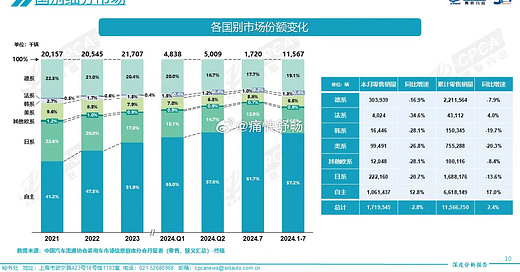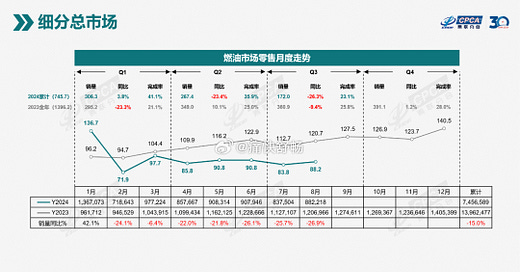Back in mid to late 2000s, China was expanding rapidly in its path to become world's factory floor. Increasingly, more and more electronics were assembled in China. This was also when Foxconn first started to assemble iPhone in China. While this was happening, India was also growing quite rapidly (although not as fast) and excelling in its role of becoming the IT outsourcing and call center for the Western companies. I remember that back in late 2000s, many wall street companies (I worked in finance) would outsource their software work to India. There would be American project managers that work with lower cost programmers in India (and some other countries also, like Russia) to complete development at lower price point. There were even stories of Indian companies then re-out source that same work to a company in China. Many people at the time claimed that while China was excelling in hardware, India was doing so in software. It really seemed like India was quite a bit ahead of China in software and was going to become a true software innovation center.
Fast forward to now, China has many well known software companies like Tencent, Bytedance, Alibaba, Baidu, Meituan, Didi, JD, PDD and Shein that span every aspect of modern software ecosystem from social media to popular gaming to e-Commerce to ride hailing to delivery service to search engine and mobile payments. Its cloud service providers Alibaba, Huawei, Tencent and Baidu are the only notable cloud providers outside of the US giants. It also has some major players that do hardware but also excel in software like Huawei, Xiaomi, DJI, Vivo, Oppo, Honor and Meituan. Huawei recently completed China's tech stack with its new Harmony OS that's completely separate from Android. It also created its own ERP and database software. At this point, we are getting close to a point where there is a Chinese alternative to everything Western.
If we look at India, it is still doing the same software out-sourcing and call center works that it was working on 15 years ago. It never developed any notable domestic champion despite the large pool of domestic software work force. It also continues to suffer huge brain drain to Western countries. In fact, many of the top American tech companies have CEOs that came from India. So, what happened? Why are talented Indian engineers building and supporting America's tech industry rather than its own tech industry? Where are the Indian national champions?
Well, I think one must look at the extent to which China was protecting its own nascent tech industry back 15 years ago. At the time, American big tech had unfettered access to 90% of the countries in the world and wanted to get into the China market. After much struggle, Google entered the China search market after agreeing to censor search results in a way that satisfied the Chinese government. Eventually, they were annoyed by the entire process and decided to pull out of China despite gaining significant market share against Baidu. They thought that all the censoring was too much trouble and China would not be able to function without Google. After that point, Google was as good as dead in China. Other American companies like Amazon and Facebook were never able to crack the China market. The Chinese regulators never allowed Facebook to enter the domestic market despite many attempts by Mark Zuckerberg to censor Facebook in a way that met Chinese government's expectations. Since then, you can see how bitter Zuckerberg is about the entire experience. He really came out against China and TikTok in Congressional testimonies.
In many ways, China's entire software sector developed entirely differently than rest of the world. Since Baidu never got great at searches, people just don't use web searches all that much. Everyone interacts through popular apps like WeChat, Weibo, Douyin (Chinese TikTok), AliExpress, JD, Xiaohongshu (little red book) and others. People just don't do web searches. They get their info from searching in those apps. China's mobile payment system also took off in a way that nobody could imagine 15 years ago. China has basically become a cashless society where Alipay and WechatPay do all the heavy lifting. This has also pushed Chinese society to be more connected than ever. The cheap and readily available 5G network as well as abundant smart phone options allowed Chinese population to become almost fully connected. How do you live without a phone and internet access if everything requires Alipay or WechatPay? In fact, battery bank rental has become popular in China, because phone/Internet access is so critical to quality of life.
It's important to emphasize that China's software sector also developed because China already had some good tech companies and a huge talent pool that was increasingly staying in China. When Huawei saw its dependence to Western software, it worked hard to develop that entire stack internally. When smart phones started to replace featured phones, upstart Chinese phone companies beat legacy feature phone companies like Nokia and China Inc took over 50% of world's phone market. They were able to do this through ruthless competition where only the most competitive companies like Huawei, Xiaomi, Vivo and Oppo survived. Similarly, it was through ruthless competition that Bytedance became the absolute beast that it is today. It won in the end, because it developed the most addictive algo.
So, it's important to note that China developed its software sector both due to government's actions in blocking market access as well as policies that fostered ruthless competition.
At the same time, while India does have some popular local apps, I'm not aware of any that got as popular globally as TikTok or Temu or Shein. In fact, the most popular apps these days are pretty heavily dominated by Chinese and American ones. Given that India is oen of the most protected market for hardware stuff, it's almost puzzling that India just allowed unfettered access to American tech companies in the software space. Maybe Indian government was more focused on attracting American tech companies to invest in India rather than building its own champions.
As I said before, there is a lot of risks to a country when it relies on foreign investment. I think that is more accurate now than ever. American multi-nationals are responsible to its shareholders and American government. If it is no longer profitable or politically viable to invest in your country, the foreign company can always downsize its investment and work force.
The advent of Artifical Intelligence is making this more realistic than ever. Since ChatGPT came out, we have seen a whole wave of investment into AI with hyperscalers spending endless amount of capex. Over time, more and more tasks around us will be automated away. It would seem to me that entry level out sourcing and call center works are among the easiest jobs to be automated away. Instead of hiring 1000 people, maybe you can replace that with 10 people that run and monitor the AI systems that are handling call center works and low level programming. We have already seen millions of manufacturing jobs automated away by industrial robots and AGVs. The next phase of automation will come after service sector jobs like the ones I just mentioned. As such, countries that depend on call center and software out sourcing jobs are in major risks of massive economic problems. Instead of growing at 5 to 6%, India might only grow 2 to 3% each year while also facing huge balance of payment issues. If United Airlines can find an AI solution that handles all the customer calls, why would it still need this many call center workers? As such, I would anticipate automation to provide significant disruptions in the next decade.
Nowadays, it's hard to even think of 5 notable software companies from Europe and Japan. In the past 30 years, we have seen the American economy grow consistently even as the European economy flat-lined. Now, even the poorest state in America is richer than everywhere in UK outside of London. Numerous media have reported on Europe and Japan’s status as high-end vacation destinations for Americans. Such is the disparity between average wealth of an American and European. In other word, America has really benefited from its software companies dominating global IT industry. Many software engineering talent migrate to American every year. Americans are more wealth than ever compared to other nations in the collective West. It has done all of this without any major complaints from Europe and Japan.
In many ways, the advent of artificial intelligence will increase further increase the gap between America and everyone else. With that in mind, the Chinese government's approach in blocking access to American tech has really given it a chance to also be rich. While many members of Chinese diaspora complain of note being able to access google and gmail when they go back to China, they forget that Chinese government's top responsibility is improving the quality of lives for Chinese people. It's quite apparent to me that most other major governments are either too stupid or too inept to realize this. Having a local software industry with thriving tech companies mean that you will also have a thriving AI industry. The two are completely correlated. No amount of government subsidies can create an Ai industry. You need big tech companies that invest serious amount of R&D. Today, we see Huawei, Bytedance, Xiaomi, Vivo, Oppo, Alibaba, Baidu, Tencent and many others investing huge amount of resources into AI. That's on top of the more specialized AI companies like Sensetime, iFlyTek and Baichuan as well as startups like Deepseek and Kimi that have all created very competitive with models for different purposes. China will have a place on the table for the AI age just as American will have a place on the table. Everyone else will lose out. That's the cold hard reality.
When people talk about China's industrial policy, nobody thinks about its most successful application of industrial policy -> using censorship rationale to block market access to google and facebook. America's move to block China Inc from accessing American market under the guise of national security are essentially also industrial policy.
Some people in America like Robert Atkinson would say that China is too ambitious and wants everything. That statement may be true, but it overlooks the fact that America also wants everything. Any single country that dominates AI would dominate all high value added jobs and wealth. No amount of German export of advanced chemicals would allow it to overcome a non-existent AI industry. So, China did good for itself. It carved out a piece of AI pie. The only question is how big the piece will be.














It's funny that the real reason Facebook isn't in China is because they wouldn't provide the government with any data during a terrorist attack in 2009 that killed over 100 people. Since then the CPC has known US social media is just an agent of regime change
Anyone who wants to know why India hasn't achieved like China just needs to go spend 2 weeks in each country.
They will be fully aware why after that.